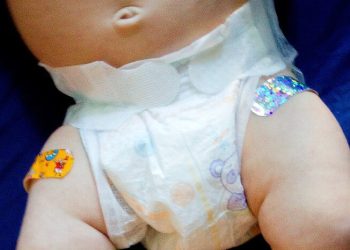The Medicines and Healthcare products Regulatory Agency (MHRA) and Barts Health NHS Trust have introduced a groundbreaking DNA sequencing technology in London hospitals, significantly reducing bacterial infection diagnosis time from weeks to just two days.
This advancement promises faster, targeted treatments, combating antimicrobial resistance and improving patient outcomes across the UK.
Revolutionizing Infection Diagnosis
The collaboration between the MHRA and Barts Health NHS Trust marks a significant leap forward in healthcare diagnostics. By implementing DNA sequencing technology, hospitals can now identify bacterial infections with unprecedented speed and accuracy.
This innovation not only enhances patient care but also addresses the growing threat of antimicrobial resistance by enabling quicker, more effective treatments.
Changes in Patient Care
This new approach to diagnosing infections has profound implications for patients across the UK. Faster diagnosis means that patients receive appropriate treatment sooner, reducing recovery times and minimizing complications such as sepsis.
The ability to quickly identify antibiotic-resistant bacteria also helps prevent the spread of ‘superbugs,’ safeguarding public health.
Wider Adoption Across the NHS
Currently utilized in seven London hospitals, there are plans to expand this technology throughout the NHS.
Standardizing DNA sequencing for infection diagnosis could transform healthcare delivery nationwide, ensuring all patients benefit from rapid and accurate diagnostic services.
This initiative aligns with global efforts to combat antimicrobial resistance, positioning the UK as a leader in healthcare innovation.
Health Minister Ashley Dalton said:
“This collaboration between the MHRA and the NHS shows British innovation at its best.”
“This groundbreaking use of the technology in hospitals will cut diagnosis times down from weeks to just two days enabling doctors to provide the right treatment faster and saving lives, while also fighting the growing threat of antimicrobial resistance.”
“As we move from analogue to digital, we are delivering practical solutions for our NHS which will improve patient care and help our frontline staff work more effectively.”
Advantages of DNA Sequencing
- Reduces diagnosis time from weeks to two days
- Improves accuracy in identifying bacterial infections
- Aids in combating antibiotic-resistant bacteria
- Enhances patient outcomes through targeted treatments
- Supports global efforts against antimicrobial resistance
Pioneering British Innovation
The success of this initiative highlights British innovation at its best. Health Minister Ashley Dalton praised the collaboration as a testament to the UK’s commitment to advancing healthcare technology.
Dr. Chrysi Sergaki from MHRA emphasized that this pilot study is already making a tangible difference in patient care by providing reliable results within 48 hours.
Dr Chrysi Sergaki, Head of Microbiome at the MHRA, said:
“The pilot has demonstrated that this new technology is already making a real difference to patients’ lives. When someone comes into hospital with a serious infection, every hour counts.”
“Instead of waiting days or even weeks to identify exactly what’s causing their infection, hospitals can now get answers within 48 hours. This means doctors can start the right treatment sooner, helping patients recover faster and get back home to their families.”
“At the MHRA, our role is to develop and provide reference materials that ensure hospitals using this technology can produce consistent, reliable and accurate results they can trust in a service such as this.”
“We are building on this work, developing reference materials to help detect antibiotic-resistant bacteria, which will be crucial in the fight against superbugs.”
Additional Reading
The Takeaway
This pioneering use of DNA sequencing technology represents a major step forward for healthcare in the UK.
By drastically reducing diagnosis times and improving treatment precision, it offers hope for better patient outcomes while addressing critical challenges like antimicrobial resistance.
As adoption expands across the NHS, its impact will likely be felt nationwide.
Sources: Gov.uk on MHRA Collaboration with Hospital DNA Sequencing Service Cuts Time to Diagnose Infections, NHS Information on Antimicrobial Resistance, Medicines and Healthcare products Regulatory Agency, and Barts Health NHS Trust on New DNA Sequencing Approach Development.
Ivan Alexander Golden, Founder of THX News™, an independent news organization dedicated to providing insightful analysis on current events, prepared this article.









